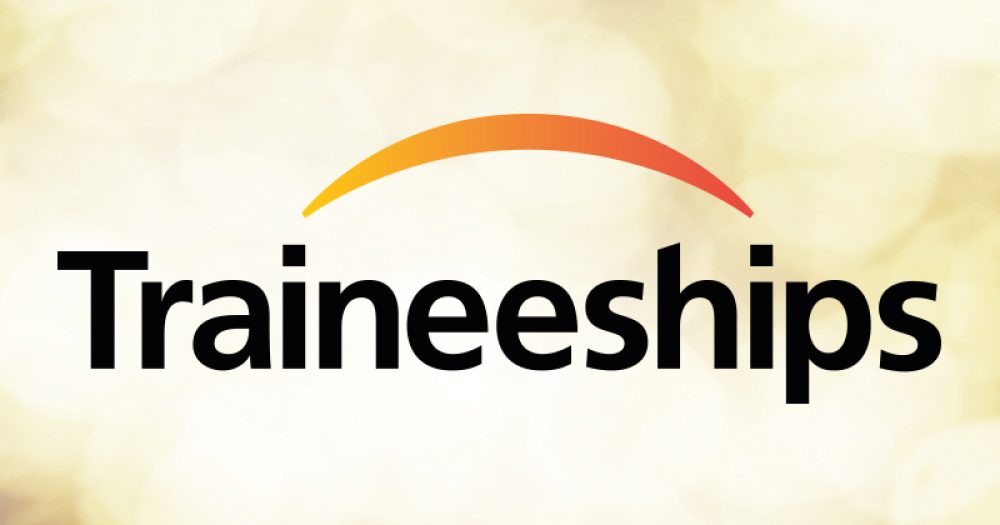New rules on funding 19 to 24 year-olds completing traineeships have been released by the Education and Skills Funding Agency, after the government announced a £111 million boost for the ‘proven’ programme.
Guidance around initiatives announced by the ESFA last month, such as cutting the hours for the programme’s mandatory work placement from 100 to 70 and allowing level 3 learners to take traineeships were included in the latest version of the adult education budget funding and performance management rules for 2020/21 published today.
According to the new rules, the ESFA will fully fund 16 to 24-year-olds with level 3 qualifications to complete traineeships using the same criteria it did for when the programme capped admission at learners with qualifications up to level 2: if they are unemployed; have little to no work experience and are focused on employment, an apprenticeship or prospects of either; or if they have been assessed as having the potential to be ready for employment or an apprenticeship in 12 months.
These new rules also introduce a requirement for providers to support trainees aged over 19 to improve their digital skills if they are assessed as being below level 1.
As well as supporting learners who have not achieved English and maths grade 4 at GCSE or level 2 functional skills qualification, providers should also support learners to develop any digital skills which are part of an occupational standard published by the Institute for Apprenticeships & Technical Education, which is being linked to in the vocational learning element.
The Association of Employment and Learning Providers chief policy officer Simon Ashworth said: “We firmly believe that the digital skills element adds further value to an already successful programme and along with maths and English should form the golden triangle of essential skills for everyone.
“As 19-24 traineeships are part of the AEB, there is joined-up synergy with the new digital legal entitlement which started this month.”
After it was announced trainees could split work placements across two employers, the ESFA has now said each placement must last at least two weeks with each employer, “with each placement supporting progression linked to their learning plan”.
Providers have been given up to 60 days of the traineeship start date to record the employers’ details in individualised learner records and the placement does not need to start within 60 days and can be recorded as a future start date. Previously, providers had to record the employer’s details within four weeks.
Traineeships, established in 2013, are eligible for 16 to 24-year-olds and providers are funded by the ESFA to deliver both pre-employment training – including writing CVs, preparing for interviews and searching for jobs – and arranging the work placement.
Chancellor of the Exchequer Rishi Sunak announced in his summer statement in July the £111 million to triple participation in the ‘proven’ programme, after starts declined from a high of 24,100 in 2015/16 down to just 14,900 last year.
Sunak also unveiled a new incentive payment of £1,000 per learner, for up to 10 learners, for every employer who gives a trainee a work placement. The ESFA has said guidance on this will be published separate to these rules.
The Education and Skills Funding Agency announced last month it would launch a tender to “quickly” widen the provider base for adult traineeships.
Ashworth said: “Traditionally the traineeship programme has been about supporting those learners below level 3 and that core purpose should not change.
“However, the relaxation to include those with a prior level 3 is also a pragmatic move in the current economic climate with the uncertainty that young people currently face and AELP hopes that it is a rule that remains in place for the longer term.
“At the core of the traineeship is the work placement and the best programmes have been where they are employer-led and high quality work placements have been a key factor behind the success rates being so high. However, with employers facing so much uncertainty, allowing learners several shorter placement adds a helpful flexible dimension – a minimum of two weeks on each placement is therefore entirely appropriate.
“The ESFA have been careful to consult regularly with the traineeship providers with a proven track-record and this gives us confidence that providers won’t have any difficulty in using up the £111m boost to the programme, offered by the chancellor, and placing more young people into an apprenticeship or a job.”
You can see the new adult education budget funding and performance management rules for 2020/21 HERE.









Your thoughts